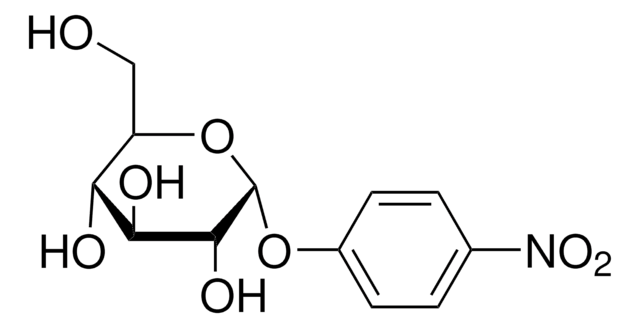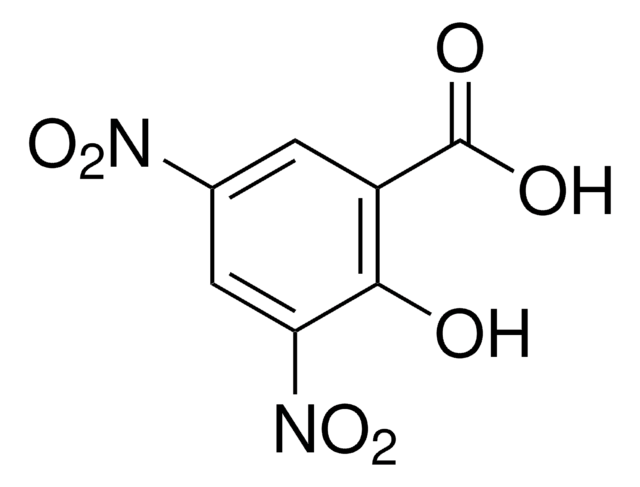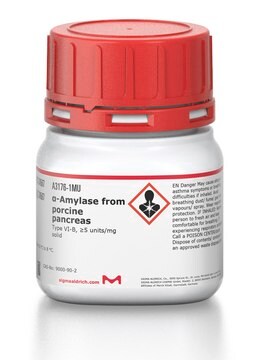Wichtige Dokumente
Y0000354
Acarbose für die Identifizierung
European Pharmacopoeia (EP) Reference Standard
Synonym(e):
Acarbose, 4",6"-Didesoxy-4"-([1S]-[1,4,6/5]-4,5,6-trihydroxy-3-hydroxymethyl-2-cyclohexenylamino)-maltotriose
About This Item
Empfohlene Produkte
Qualität
pharmaceutical primary standard
API-Familie
acarbose
Hersteller/Markenname
EDQM
Anwendung(en)
pharmaceutical (small molecule)
Format
neat
Lagertemp.
2-8°C
SMILES String
C[C@H]1O[C@H](O[C@H]2[C@H](O)[C@@H](O)[C@H](O[C@@H]2CO)O[C@H]3[C@H](O)[C@@H](O)[C@H](O)O[C@@H]3CO)[C@H](O)[C@@H](O)[C@@H]1N[C@H]4C=C(CO)[C@@H](O)[C@H](O)[C@H]4O
InChI
1S/C25H43NO18/c1-6-11(26-8-2-7(3-27)12(30)15(33)13(8)31)14(32)19(37)24(40-6)43-22-10(5-29)42-25(20(38)17(22)35)44-21-9(4-28)41-23(39)18(36)16(21)34/h2,6,8-39H,3-5H2,1H3/t6-,8+,9-,10-,11-,12-,13+,14+,15+,16-,17-,18-,19-,20-,21-,22-,23-,24-,25-/m1/s1
InChIKey
XUFXOAAUWZOOIT-SXARVLRPSA-N
Angaben zum Gen
human ... AMY2A(279) , MGAM(8972)
Suchen Sie nach ähnlichen Produkten? Aufrufen Leitfaden zum Produktvergleich
Verwandte Kategorien
Allgemeine Beschreibung
Anwendung
Biochem./physiol. Wirkung
Verpackung
Sonstige Hinweise
Ähnliches Produkt
Lagerklassenschlüssel
11 - Combustible Solids
WGK
WGK 1
Flammpunkt (°F)
Not applicable
Flammpunkt (°C)
Not applicable
Hier finden Sie alle aktuellen Versionen:
Analysenzertifikate (COA)
It looks like we've run into a problem, but you can still download Certificates of Analysis from our Dokumente section.
Wenn Sie Hilfe benötigen, wenden Sie sich bitte an Kundensupport
Besitzen Sie dieses Produkt bereits?
In der Dokumentenbibliothek finden Sie die Dokumentation zu den Produkten, die Sie kürzlich erworben haben.
Unser Team von Wissenschaftlern verfügt über Erfahrung in allen Forschungsbereichen einschließlich Life Science, Materialwissenschaften, chemischer Synthese, Chromatographie, Analytik und vielen mehr..
Setzen Sie sich mit dem technischen Dienst in Verbindung.




